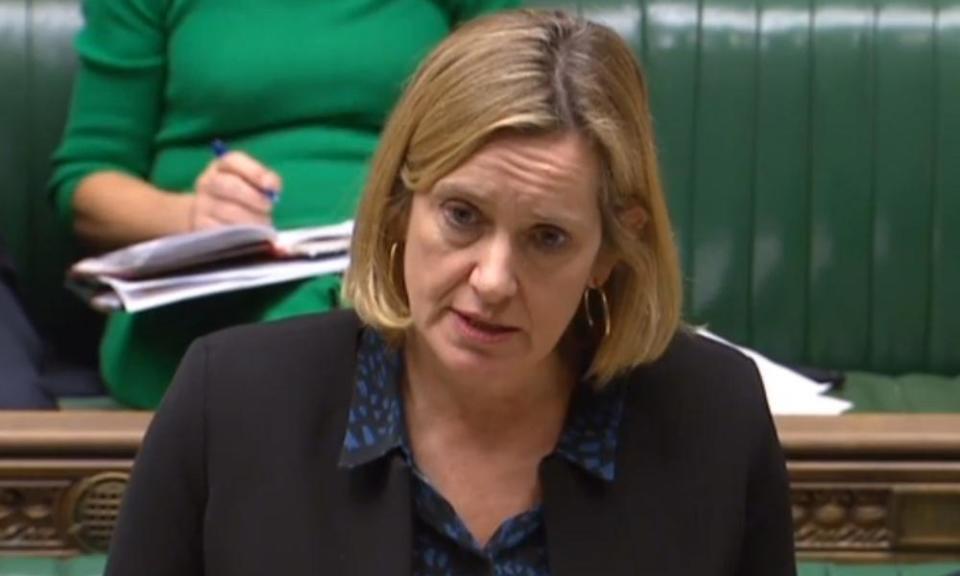Amber Rudd condemns UN poverty report in combative return to frontline politics

Amber Rudd has used her first appearance in the House of Commons as work and pensions secretary to condemn a UN inquiry into poverty in the UK over what she said was the “extraordinary political nature” of its language.
In a sometimes combative appearance at departmental questions, three days after she was appointed in place of Esther McVey, who resigned in protest at Theresa May’s Brexit deal, Rudd condemned the report by Philip Alston, the UN’s rapporteur on extreme poverty and human rights.
At the end of a two-week trip to the UK, Alston said the government had inflicted poverty on people through austerity and called levels of child poverty “not just a disgrace but a social calamity and an economic disaster”.
He also attacked universal credit, which had been beset by problems during McVey’s time in the job.
Rudd, returning to the cabinet seven months after stepping down as home secretary amid the Windrush scandal, said she profoundly disagreed with Altson’s approach.
Asked by her Labour shadow counterpart, Margaret Greenwood, about the report’s criticism of the government’s new all-in-one working benefits system, Rudd said: “I have seen the report by the rapporteur, I’ve read it over the weekend, and I must say I was disappointed to say the least by the extraordinary political nature of his language.
“We, on this side of the house, will always engage with professionals, with experts, with NGOs. We are not so proud that we don’t think we can learn as we try to adjust universal credit for the benefit of everybody. But that sort of language was wholly inappropriate and discredited a lot of what he was saying.”
She added: “But we look forward to working with experts in the area, to make sure we get the right outcome for the people who we want to look after.”
Asked about the tone of the UN report, May’s spokesman said: “We strongly disagree with the analysis.”
More generally on universal credit, which is designed to replace six separate benefits but which charities and councils have warned is overly complex and often puts new claimants into debt, Rudd struck a more conciliatory note. She promised to try to improve the system but offered no new policy specifics.
Asked by the SNP’s Neil Gray to use her influence in cabinet to listen to charities and halt the rollout of the system, Rudd replied: “I wouldn’t want to overstate what the honourable gentleman calls my power, but I am certainly going to listen very carefully.
“Part of the benefit of the universal credit rollout is going to be making sure we get the expert guidance from the people who have been working in this field for many years – and we will certainly be doing it.”
In response to another question on claimants’ access to emergency payments to tide them over as they move to universal credit, Rudd said: “We have already made some adjustments to that and I will make sure that I do all I can to ensure that we do better.”
She promised to deliver “a fair, compassionate and efficient benefits system”, adding: “But I know there are problems with universal credit, despite its good intentions. I’ve seen them for myself. I will be listening and learning from the expert groups in this area who do such good work. I know it can be better. I will make sure it is my role to deliver that.”

 Yahoo News
Yahoo News 